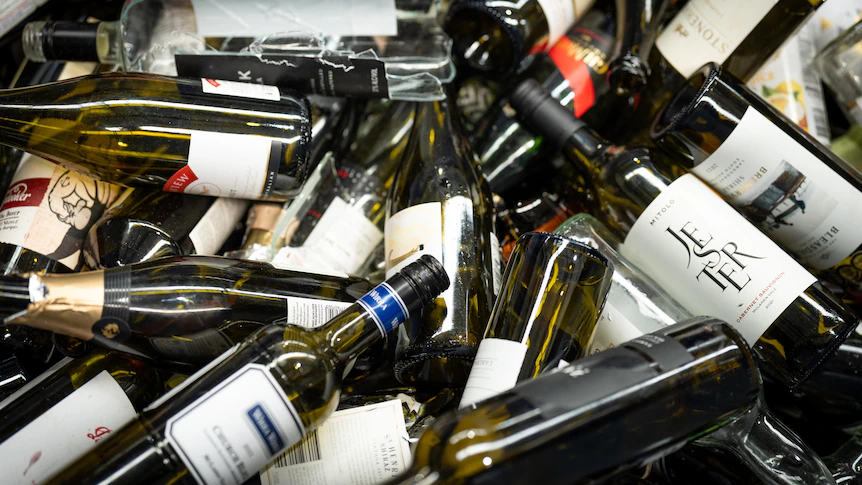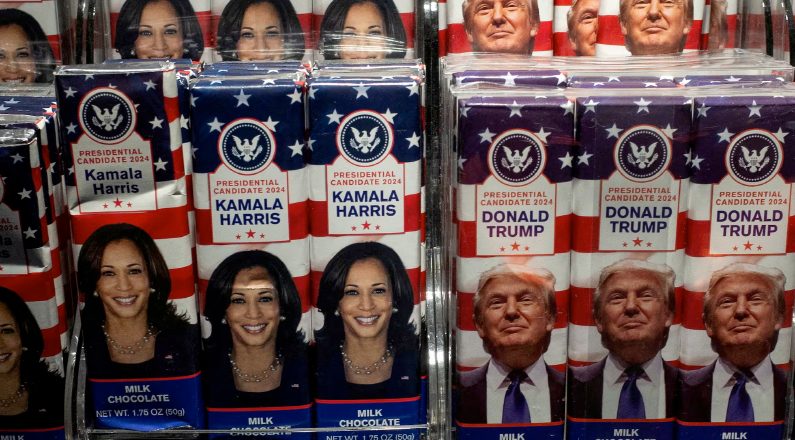By Phoebe Pin
Copyright abc

A popular trash-for-cash recycling program will be extended to include wine and spirit bottles for the first time since the scheme launched five years ago.
More than 4.5 billion items have been collected since the Western Australian Containers for Change initiative started in October 2020, with the initial rollout delayed due to the COVID-19 pandemic.
People can exchange recycled materials for a 10-cent refund at collection points across the state.
Currently, only soft-drink cans and bottles, bottled water, small flavoured milk containers, beer and cider containers, sports drinks and spirit-based mixed drinks are eligible for the scheme.
In a pre-election commitment, the WA government pledged wine and spirit bottles would be included in the scheme, and the date has now been set for July 1, 2026.
Wine packaged in plastic, sachets and casks will also be eligible for recycling, in addition to water packaged in cask, concentrated fruit and vegetable juices and flavoured milk and cordial.
WA Premier Roger Cook said the change would make it easier for locals to recycle waste and reduce landfill.
“With the addition of wine and spirit bottles, the scheme will be able to cover almost all beverage containers between 150ml and three litres,” he said.
“It is expected to bring an additional 200 million containers into the scheme every year.
“It will be a massive boost to our circular economy and a major step forward towards reducing waste and litter in WA.”
He said recycling rates for beverage containers had increased from 35 per cent to more than 65 per cent since the program’s inception.
Don’t hoard: Minister
WA Environment Minister Matthew Swinbourn warned against hoarding containers in the coming months, encouraging people to only return wine and spirit bottles bought after July 1, 2026.
“We can’t stop them from hoarding it and if people return, there is an obligation on the return sites to take that material,” he said.
“But in terms of this scheme itself, what we don’t want them to do is overwhelm [return sites] with a sudden influx.
“When we first established this scheme several years ago, we had people who did hoard, but we strongly encourage them not to do that. The scheme works because everybody plays by the rules.”
Mr Swinbourn said the state government was not currently considering increasing the cash refund per container.
“I think [10 cents] is enough. You only need 10 containers and you’ve got a dollar,” he said.
“If you’re a kid it buys you some lollies.
“It’s not on our agenda to change the rate, and any change would have to be done in coordination with the other jurisdictions.”
Not all on board
Mr Swinbourn said industry pushback had contributed to program expansion delays.
“There has obviously been some resistance from industry to be included in this, because it does place some burden on them,” he said.
“But they also need the responsibility that we all accept now that when you create a product, you have stewardship of that product.
“We will be doing [the program expansion] sooner than New South Wales and South Australia, who have announced they will be accepting wine and spirit bottles as well; theirs won’t be until 2027.”
A number of products remain excluded from the Containers for Change scheme, including plain milk containers and health tonics.
South Australia was the first state to introduce a trash-for-cash container deposit scheme in 1977, with the latest being Tasmania, which introduced its scheme earlier this year.



